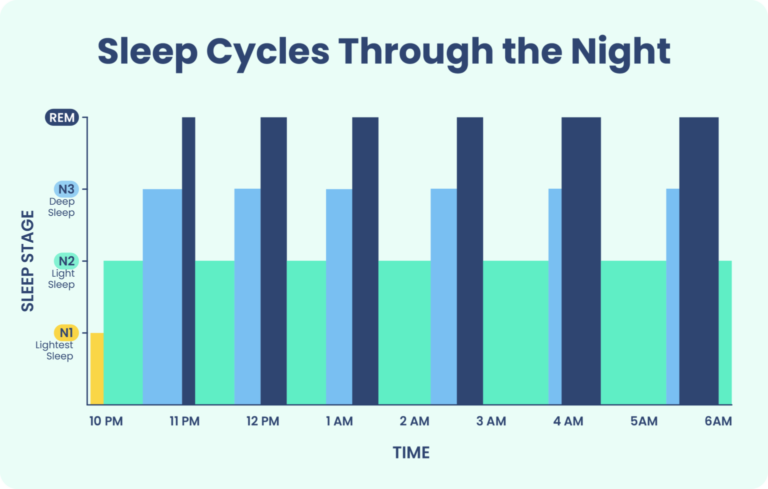Recently, the number of people taking sleep medication has been increasing, especially among young people. It shows that a lot of people are struggling with sleeping problems causing poor conditions in their day. But why is taking so much sleep medication a problem and how can we build healthy sleep habits?
A study shows that nearly one in five youths (17%) used sleep medication while only 2.3% of GenPop( general population) rely on sleep medication which indicates the increase of sleeping problems among the young people (Oerbeck et al). Sleep is very important in our health and people today are not getting enough sleep. Sleeping is important for both physical and mental health. During sleep, your body works to support healthy brain functions and your physical health by regulating hormones and strengthening the immune system. Also, it helps the brain process emotions, preserve memories, improve concentration and problem solving. So not sleeping enough is bad for your health. It can cause depression, high blood pressure and raises your risk of diabetes. (“sleeping pills”)
There are 4 stages of the sleep cycle. Stage 1 is called N1 which is the NREM(non-rapid eye movement) type. Its average length is 1 to 7 minutes. It occurs when a person first falls asleep. During this stage, the body and brain activities start to slow down. Stage 2 is called N2 which is NREM type. During stage 2, the body enters a more subdued state where the body temperature drops, muscles relax and heart rate slows. At the same time, eye movement stops and brain activities are slowed down. The third stage is called N3 which is NREM type. It’s also called deep sleep and it’s harder to wake someone up if they’re in this phase. The brain forms an identifiable pattern called delta waves. Experts say that this stage is a critical step for recovery. This stage allows the body to recover and grow and also enable creative thinking and memory. It commonly lasts for 20 to 40 minutes and as you continue sleeping, these stages get shorter and more time gets spent on REM sleep. In the last step, REM (Rapid-Eye-Movement) sleep, brain activity picks up, near as the level when you’re awake. The body experiences a temporary paralysis of the muscles, with two exceptions, the eyes and muscles that control breathing. It is believed to be essential for memory, learning and creativity. It is a stage where dreams occur much often. As night goes, REM stages get longer. In total making up to 25% of sleep (Suni).
Sleep stages matter because they allow the brain and body to recover and grow. Each stage is vital for different kinds of recovery including both physical and mental. NREM stages are crucial for physical recovery. Such as repairing tissues and building bone and muscles and strengthening the immune system. Meanwhile, REM sleep is crucial for memory processing and emotional health, managing stress (Schultz). These days, young people are not able to sleep due to stress and anxiety or increase of late-night social media use or drinking too much caffeine later in the day (“insomnia in teens”).
Students and young adults may experience high stress from academic pressure and social factors, which can lead them to disrupt sleeping and make them look for quick fixes like medication(Ownes). But taking sleep medication can be harmful due to its side effects such as dizziness or headache or diarrhea and even changes in thinking and behavior(“sleeping pills”). Therefore, sleeping pills might not be the only solution to cure sleep problems. Instead, get some exercise every day, go outside, avoid caffeine and meals before bedtime, limit electronics before bed and create a healthy sleeping environment.
In conclusion, sleeping well is important and each sleep stage has different effects on our body. And not only is sleep medication a way of achieving quality sleep, but instead building healthy sleeping habits could be much more beneficial for us. So instead of depending on medication, let’s try to build healthy sleep habits.
By: Madison Yi
Works Cited
Oerbeck, Beate et al. “The use of sleep Medication in Youth Residential Care.” National Library of Medicine, PubMed Central, 2020 Jun 17, https://pmc.ncbi.nlm.nih.gov/articles/PMC7310223/. Accessed 27 Oct 2025
“Slleping pills.” Cleveland Clinic, https://my.clevelandclinic.org/health/treatments/15308-sleeping-pills. Accessed 27 Oct 2025
“Sleep.” health direct, https://www.healthdirect.gov.au/sleep. Accessed 27 Oct 2025
Suni, Eric. “ stages of sleep: what happens in a normal sleep cycle?” sleep doctor, https://www.sleepfoundation.org/stages-of-sleep#what-are-the-sleep-stages–2 . accessed on 27 Oct 2025
Schultz Rachael. “Sleep stages: a guide to understanding your sleep cycle” nextsense, https://nextsense.io/blogs/news/sleep-stages-a-guide-to-understanding-your-sleep-cycle. Accessed on 27 Oct 2025
“Insomnia in teens: what parents should know” kids health, https://kidshealth.org/en/parents/insomnia-teens.html#:~:text=Some%20common%20causes%20of%20insomnia%20in%20teens,sleep%20clock%20shifting%20to%20a%20later%20bedtime . accessed on 27 Oct 2025
Ownes Judith. “Insufficient Sleep in Adolescents and Young Adults: An Update on Causes and Consequences.” PubMed central, https://pmc.ncbi.nlm.nih.gov/articles/PMC8194472/. Accessed on 27 oct 2025
“ prescription sleeping pills: what’s right for you?.” Mayo clinic, https://www.mayoclinic.org/diseases-conditions/insomnia/in-depth/sleeping-pills/art-20043959. Accessed on 27 oct 2025
“Good sleep for good health” New in health, https://newsinhealth.nih.gov/2021/04/good-sleep-good-health. Accessed on 27 oct 2025


